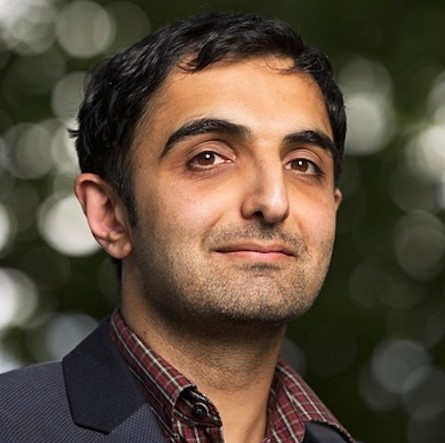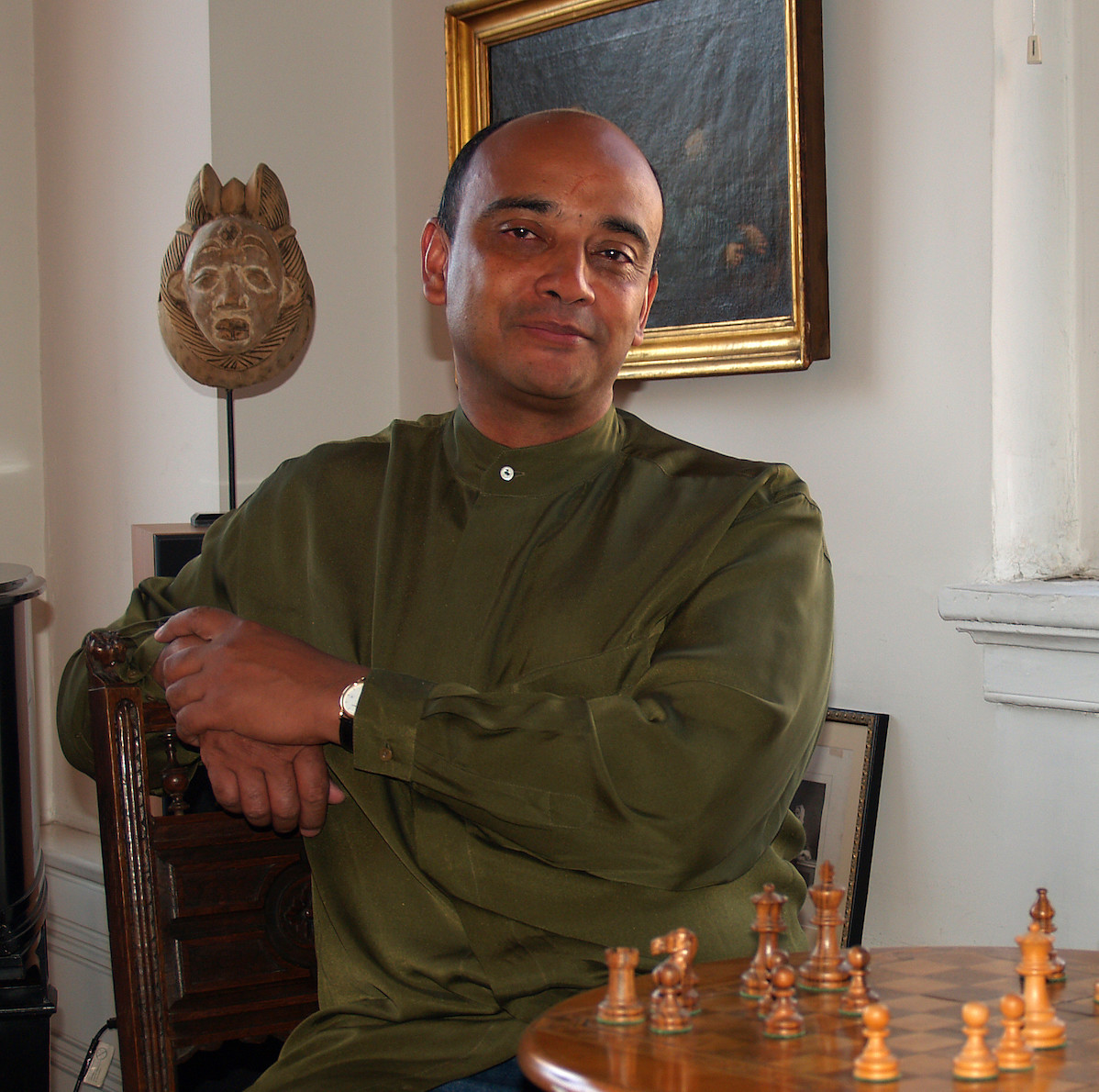Sunjeev Sahota Plans for the Frankfurt Book Fair are moving forward, with many international publishers committing to participating at the in-person conference, which will take place October 20 through 24. Author, scholar, and activist Cornel West has posted his “candid letter of resignation” to Harvard University, which he says has succumbed to “intellectual and spiritual bankruptcy of deep depths.” West, a member of the faculty of the Harvard Divinity School, was recently denied tenure. “We all knew the mendacious reasons given had nothing to do with academic standards,” West writes of the university’s decision regarding his tenure. “I knew
Parul Sehgal Powell’s Books in Portland, Oregon, is celebrating its fiftieth anniversary this year. Powell’s, said to be the world’s largest independent bookstore, is curating a selection of fifty books to mark the occasion. On the store’s website, booksellers write that the list comes out of the past year of lockdown, which they compare to a “diabolic Chuck E. Cheese ticket blaster”: “It’s been a natural time to appraise how we got to this point of fracture and fragility, and how we heal; we want to know who we’ve been, and who we’re becoming, and for that we’ve always
Katie Kitamura (photo: Martha Reta) As D.C. museums begin to reopen, the Washington Post Podcast talks with poet-editor-essayist Kevin Young, the new director of the National African American Museum of History and Culture (and the author of the forthcoming poetry collection Stones). In an interview at the New Yorker, political philsopher and author Jan-Werner Muller (What Is Populism?), who “offers a new way of looking at Donald Trump, Narendra Modi, Jair Bolsolaro, and other right-wing leaders.” “Any of us can criticize the decisions of voters and, with regard to some of the leaders you just mentioned, there’s obviously plenty
Sally Rooney At the New Yorker, Sally Rooney discusses a new story, “Unread Messages,” published in this week’s issue. The author tells David Wallace about her fondness for the middle part of a story, before things need to be wrapped up: “In my non-working life, I play a little bit of chess (very poorly), and the phase of play that I like best is the middle game, after the formal opening is out of the way, when the idea of the game starts to clarify. As a novelist, I think I aim to sustain that middle-game feeling throughout the
Amy Sohn. Photo: Craig LaCourt. At Slate, Alexis Nowicki writes about confirming the suspicion that Kristen Roupenian’s viral short story, “Cat Person,” was based on details from Nowicki’s life. The author had never met Roupenian but discovered that an older man she’d dated did and told Roupenian about the relationship. When Nowicki asked Roupenian to comment, Roupenian said that the man had told her a “handful of facts” about dating a younger woman that she then fictionalized, and apologized for not changing the identifiable details. Still, Nowicki feels unsettled: “What’s difficult about having your relationship rewritten and memorialized in
Jessica Hopper At The Cut, Molly Fischer considers the factors that helped inspire a new literary genre: the email newsletter. The pandemic has been particularly hard on the careers of writers, who already had been facing increasing economic hardships before the events of 2020. Steve Borchert looks at how a twenty-first-century Federal Writers’ Project, inspired by the New Deal’s arts initiatives, would work: “Instead of hiring impoverished writers directly—as the Depression-era F.W.P. did—the new program would empower the Department of Labor to disburse $60 million in grants to an array of recipients, from academic institutions to nonprofit literary organizations,
Nikole Hannah-Jones. Photo: Alice Vergueiro/Abraji. Howard University has announced that Nikole Hannah-Jones and Ta-Nehisi Coates will be joining the faculty. Hannah-Jones, the Pulitzer Prize–winning journalist behind “The 1619 Project,” will hold inaugural Knight Chair in Race and Journalism. She has declined tenure at the University of North Carolina after a controversy in which she was initially denied by the board of trustees. In a statement about her decision, Hannah-Jones professed her love for the university as a whole but said, “I cannot imagine working at and advancing a school named for a man who lobbied against me, who used
Dana Spiotta. Photo: Jessica Marx. On Wednesday, July 6th, Dana Spiotta will talk about her new novel, Wayward, with George Saunders at the Center for Fiction. The event is free and will be held on Zoom. At the New Yorker, Sam Lipsyte discusses his latest story for the magazine, which is about a man crafting an apology to co-workers. Lipsyte has long been drawn to workplaces in his fiction. As he explains, “Since so many readers know what it’s like to have a job, you can make more daring swerves and leaps with the details and emotional patterns and
Joy Williams. Photo: Anne Dalton Joy Williams has won the Library of Congress Prize for American Fiction, a lifetime achievement award. Carla Hayden, the librarian of Congress, said of Williams: “Her work reveals the strange and unsettling grace just beneath the surface of our lives.” Williams’s first novel in more than twenty years, Harrow, will be published this fall. Sarah Schulman’s Let The Record Show, a monumental political history of the AIDS activist group ACT UP, is being adapted as a television series by director Andrew Haigh. Schulman told Deadline, “After covering AIDS since the early 1980s I am
Danielle Dutton. Photo: Washington University in St. Louis Dorothy, A Publishing Project, the independent press run by Danielle Dutton and Martin Riker, is entering into a sales and distribution partnership with New York Review Books. Starting in February 2022, Dorothy books will be listed in the New York Review Books catalog. Due to the new arrangement, Dorothy’s two 2021 titles—Caren Beilin’s Revenge of the Scapegoat and Christina Rivera Garza’s New Selected Stories—will now be published in April, rather than October. Two more titles will be released in Fall 2022, after which point Dorothy will continue to bring out two
Lauren Berlant. Photo: Robert Kozloff. Theorist and author Lauren Berlant has died at age sixty-three. Berlant was a pioneering scholar in heteronormativity, queer theory, and affect theory, whose 2011 book, Cruel Optimism, was a visionary and influential study of how capitalism and neoliberalism shape human desire. Berlant defined “cruel optimism” as “a double-bind in which your attachment to an object sustains you in life at the same time as that object is actually a threat to your flourishing.” They were the author or coauthor of several more books, including The Female Complaint, Desire/Love, and 2019’s The Hundreds, among other
Rachel Cusk. Photo: Sean Dellorco The Man Who Lived Underground, the long-unpublished novel by Richard Wright that was recently issued by the Library of America, is being adapted for the screen. “Like the Soviet state dangling the promise of a radiant future in front of its tired citizens, Musk’s success is sustained by predictions of a technological sublime that’s only ever another decade away.” Phil Jones on Elon Musk at the LRB Blog. At the Creative Independent, the legendary Gordon Lish talks about the best qualities of an editor (“Listen hardest”), Raymond Carver, and whether “there is anything more
Clint Smith. Photo: Carletta Girma For T: The New York Times Style Magazine, Nicole Rudick considers the numerous visual artists who have drawn inspiration from Ralph Ellison’s Invisible Man. “Invisibility may seem antithetical to visual art,” Rudick writes. “How can an artist render what isn’t there? But plenty of artists have embraced this conceptual challenge.” Gordon Parks, who worked with Ellison in 1952 to interpret the then-new novel into an image series for Life magazine, was the first in this line of artists, which includes Ming Smith, Kerry James Marshall, Hank Willis Thomas, Jack Whitten, Cladia Rawles, and others.
Charles Johnson. Photo: Lynette Huffman Johnson. BuzzFeed news is merging with 890 Fifth Avenue Partners so that it can be traded publicly. The internet media company is aiming for a valuation of $1.5 billion and plans to acquire other digital publications, beginning with Complex Network. At LitHub, an excerpt from a new comics collection, It’s Life as I See It: Black Cartoonists in Chicago 1940–1980. In one of the book’s introductory essays, Charles Johnson writes about his early days as an artist and why he still loves comics: “As a writer, I think visually, and no creative pleasure is
Brandon Taylor. Photo: Bill Adams The Asian American Writers’ Workshop is holding a flash sale for tickets to their Page Turner Publishing Conference. Today only, admission is half-price. The conference will be held this Saturday, opening with a keynote address by Matthew Salesses, and will feature panels with Hua Hsu, Jennifer L. Wilson, E. Tammy Kim, Anuk Arudpragasam, Jay Caspian Kang, and others on cultural criticism, the “new editorial vanguard,” the worlds of academic and trade publishing, and more. Parul Sehgal considers several recent books that call to expand and complicate notions of consent, including, among others, Katherine Angel’s
Elias Rodriques. Photo: Jourdan Christopher At n+1, you can read an excerpt from Elias Rodriques’s debut novel, All the Water I’ve Seen Is Running, which is out today from W. W. Norton. On Thursday evening, Rodriques will discuss his novel with author and Pennsylvania State Senator Nikil Saval in a virtual event at the Free Library of Philadelphia. For more on the novel, see this Times review. Succession actor Nicholas Braun has been cast in the film adaptation of Kristen Roupenian’s 2017 viral short-story, “Cat Person.” Braun will play the older man, Robert, who sleeps with Margot, a twenty-year-old
Kwame Anthony Appiah. Photo: Wikipedia/David Shankbone At The Cut, Mia Mercado writes about Chimamanda Ngozi Adichie’s recent three-part essay “It Is Obscene,” in which the Americanah author responds to accusations that she is transphobic. In the essay’s second part, Adichie describes a particular author’s “perverse self-absorption” and “utter lack of self-awareness.” As Mercado points out, this author is Nigerian novelist Akwaeke Emezi, who in 2020 called Adichie transphobic in a Twitter thread. Emezi has written in a statement posted on Instagram: “I won’t be reading [Adichie’s essay] because it wasn’t meant for me. It was designed to incite hordes
Jesse McCarthy. Photo: Nina Sparling After more than two years of negotiation, the New Yorker Union has secured a new agreement, averting a strike. According to the union’s Twitter account, the agreement includes provisions on compensation, job security, benefits, diversity and inclusion, and workplace safety. Bloomberg reports that New Yorker fact-checkers have won employee status rather than being hired as subcontractors. Earlier this week, Ben Smith reported on the New Yorker’s union drive for the New York Times, and offered a look inside meetings held by the magazine’s marquee writers, some of whom were hesitant to join NewsGuild. Tonight
Annette Gordon-Reed. Photo: W. W. Norton/Tony Rinaldo Linda Amster, a research supervisor at the New York Times, put in long hours on the Pentagon Papers story, but did not receive credit. Now, in a new oral history and audio interview, she’s getting recognition—sort of. Though she’s been allowed to narrate her role, the paper will not amend the original piece, as Times spokesperson Danielle Rhoades Ha explains: “We’re setting the record straight with readers with the new reporting and podcast. It’s more effective than appending an update or correction on a decades old story.” Remembering the original snub, Amster
Marlon James. Photo: Mark Seliger. The Los Angeles Times talks with Marlon James about season two of the podcast Marlon Jake Read Dead People, which James co-hosts with Riverhead editor Jake Morrissey. The show is a lively forum for discussions of books from the past—hence the title—and James and Morrissey are not afraid to mix it up, as James observes: “Our conversations are always very discursive. Jake would drop an allusion, and I would say, ‘That writer’s a jackass!’” Tomorrow is the Royal Society of Literature’s Dalloway Day 2021, a celebration of Virginia Woolf’s novel held every year on



















